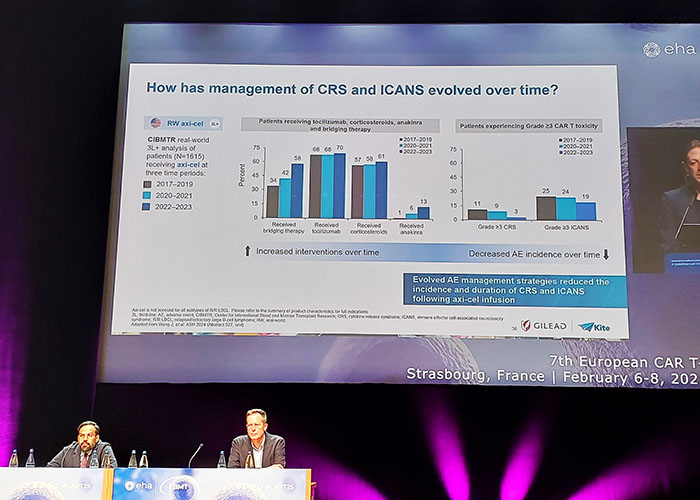
Cytokine Release Syndrome (CRS) is one of the most common and serious side effects of CAR-T cell therapy. It occurs when the immune system reacts strongly to the activated CAR-T cells, releasing a large number of inflammatory molecules called cytokines into the bloodstream.
CRS typically appears within a few days after CAR-T cell infusion and can range from mild flu-like symptoms—such as fever, fatigue, and muscle aches—to severe, life-threatening complications like low blood pressure, difficulty breathing, and organ failure.
The severity of CRS is usually graded on a scale from 1 to 4. Most patients experience mild to moderate symptoms, which can be managed with supportive care. Severe cases may require treatment with immunosuppressive drugs such as tocilizumab (an IL-6 receptor blocker) or corticosteroids. Early detection and experienced medical teams are crucial for safely managing CRS. That’s why CAR-T therapy is provided in specialized centers equipped to monitor and treat this reaction promptly.
While CRS can sound alarming, it's actually a sign that the CAR-T cells are actively engaging the cancer. With the right care, most patients recover fully from CRS and go on to benefit from the therapy.

Photo: European CAR-T conference 2025. Strasbourg, France.
Publication date: April 2025
Sources:
cancer.gov
cancer.org
mdanderson.org
mdanderson.org







